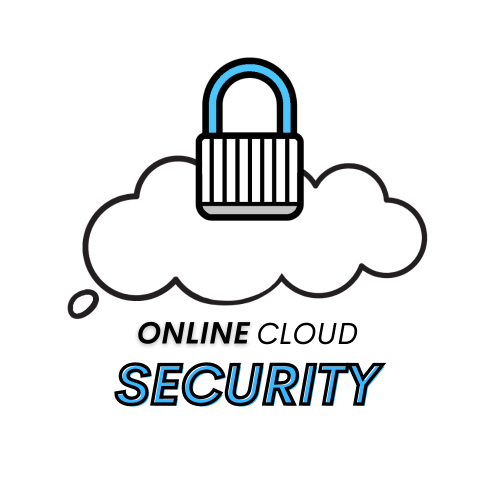
Dave Miller – Tech Enthusiast & Security Expert – August 8th, 2022

An SSL certificate is present on websites that begin with HTTPS rather than HTTP, but what does it signify, and what is an SSL Encryption exactly? The internet, in general, is an insecure medium for exchanging information with a significant possibility of fraud or intrusion.
As a result, server-client communication must get protected to access the internet, and fortunately, several techniques are employed. It is where the security protocol aids the security and integrity of data transmitted over the internet. These internet protocol types define the procedures and techniques for protecting network data from unauthorized attempts to access or extract data over the internet.
Find out what SSL is, how it keeps you safe, and why it is so important by reading the rest of the article.
To merely respond, what is an SSL Encryption? It is a protocol to improve the secrecy and integrity of data transfer, making it perfect for internet security. The encrypted relationship between a web server and a browser is established cryptographically via SSL certificates, which are tiny data files. I’ll go into more depth about this in a moment. First, let’s discuss the backstory of the SSL Protocol.
American independent computer services provider Netscape Communications Corporation was once the industry standard but fell behind Internet Explorer and other rivals. Later, Netscape got shut down, and all product support ended on March 1, 2008. But Netscape’s one contribution to the internet was the creation of SSL, which was used to secure online communication and is the forerunner of the TSL encryption currently in use.
SSL offers a secure route between computers or devices communicating over the internet or a private network. Only websites with an SSL certificate can use SSL: an SSL data file housed on a website’s origin server. The public key and identification of the website and other pertinent data are contained in SSL certificates, enabling SSL encryption.
Together, these keys create an encrypted connection, guaranteed by SSL certificates, which also build confidence. The fact that a reliable entity has digitally signed an SSL certificate is its most crucial component. Therefore, having an SSL Certificate indicates that a background check was performed on your website and verifies that the company is associated with that specific domain name.
SSL uses port 443 to authenticate users and encrypt data sent between the web browser and the server. Corresponding data is first retrieved from the browser and used to implement the SSL encryption. The client then confirms that the domain and server are associated with the URL. The SSL certificate is then verified, establishing the link between the domain and web server.
Therefore, it implies that data is encrypted initially by a public key. The private key on the website may then get used to decrypt the data sent between the server and client. So, it indicates that the data link between the two participants is inaccessible to third parties. The encryption strength of a website’s SSL certificate might range from 40 bits or less to 128 bits or more. The generation of private and public security keys may even employ 256-bit encryption in the modern form of SLS

Customers and site visitors are more likely to have their data stolen if SSL gets not used. It is because initially, the data on any Web got transmitted in plaintext. It can get sniffed by passive network traffic interception to get credentials, which can then get used to accessing the database.
The SSL protocol has gone through multiple iterations since it got first introduced roughly 25 years ago, all of which experienced security issues at some time. However, SSL is still strong.
Note: Even though not impossible, there is minimal risk that an SSL certificate may be compromised. Even if you may have an SSL enabled, your website may still be susceptible in other respects.
Although the SSL protocol got deprecated with the release of TLS 1.0, it is common to refer to these related technologies as the initials SSL stuck. Hence, the old name is usually the new protocol version. Since SSL 3.0, released in 1996, got not updated, it gets currently regarded as obsolete.
You may have noticed that occasionally when you visit a website, a Not Secure message appears. You are seeing the warning because your website does not provide an encrypted connection. A browser cannot verify the SSL certificate of a website. What can you do then to determine whether an SSL connection is present on a website or not?
The internet is generally private and secure, but it can occasionally be an unsecure medium for information exchange without proper measures.
Fact: 5.03 billion people worldwide use the internet today – equivalent to 63.1 % of the world’s total population.
A rising number of individuals are utilizing the internet for personal and professional purposes, as well as for socializing and enjoyment, raising privacy concerns. Online information is getting posted at an increasing rate, which increases the risk and gives malevolent individuals additional possibilities.
There are many facets of internet security due to internet technology’s extensive and long history. Internet security is of the utmost importance to consumers and organizations due to the significant danger of penetration by hackers and cybercriminals. Therefore, various security measures get used to protecting online activities and transactions.
Considering breaches, you will see that some type of Internet exposure is nearly always involved. Additionally, lowering Internet exposure does not entirely prevent data breaches. That is where Internet and network protocols come, requiring some understanding after grasping the specifics of SSL Encryption.
Secure online communication gets referred to as internet security. It will make an effort to keep data in transit safe and secure over the links of the network. Therefore, there are specific network security protocols included in this. They often use cryptography and encryption methods to safeguard the data and ensure that a unique algorithm is required to decode it. These protocols also specify how the network protects data from any unauthorized users who could try to access the data. It would be best to have a broad grasp of the five protocols used for these objectives in addition to the above-explained SSL encryption.
From Secure Sockets Layer, TLS emerged (SSL). It also offers Internet communications privacy and data integrity, and using TLS is a best practice for creating secure online apps. The TLS protocol achieves its goals primarily by relying on three parameters: encryption, authentication, and integrity.
Secure Hypertext Transfer Protocol, or SHTTP, is a group of safety precautions. It can sign and encrypt individual messages, and its services are comparable to the SSL protocol.
Early e-commerce websites secured electronic payments using a communications technique called secure electronic transactions. It is not the same as a payment system; it is an internet-based secure transaction protocol.
The de facto file format for storing and transmitting encryption techniques, certificates, and other data is the Privacy-Enhanced Mail protocol. Providing secure electronic mail communication via the internet requires email security.
Now that you know all these security protocols—some of which even get connected to SSL—you can better understand them. So, in addition to explaining what SSL encryption is, below is some essential advice for implementing SSL on your websites.
Now you know what is an SSL Encryption, but you should know how to implement it.
Additionally to SSL’s role in securing sensitive data, SSL also serves as a ranking element for Google searches.
Cybersecurity risks are unavoidable, but you may improve your security by continuing to learn about it and, as you already know now, what is an SSL encryption. You should know what is covered by TLS as the previous SSL is no longer accessible for usage. Despite having the same name, it is distinct and developed as an improved version of the SLS. You may now check the encryption level of every website you visit by reading this post the next time you do so.
**Onlinecloudsecurity.com is a participant in the Amazon Services LLC Associates Program, an affiliate advertising program designed to provide a way for websites to earn advertising revenues by advertising and linking to Amazon.com and affiliated sites. As an Amazon Associate we earn affiliate commissions from qualifying purchases.**

Dave Miller is an IT Consultant for Online Cloud Security and has over 7 years of experience in the Information Technology space. He also specializes in repairing laptops & computers. In his spare time, he loves to talk about new technologies and hosts monthly IT and Cyber Security meetings in the Houston area.
Click any button down below to share this article on the following channels:

Online Cloud Security is here to recommend you the most secure devices, from laptops to smartphones, we only want to provide you with products that we have tested and used ourselves for online security. Every product that we recommend is heavily inspected and tested for security against hackers, viruses, malware, and any other intruders that may want to steal your information.

Online Cloud Security is here to recommend you the most secure devices, from laptops to smartphones, we only want to provide you with products that we have tested and used ourselves for online security. Every product that we recommend is heavily inspected and tested for security against hackers, viruses, malware, and any other intruders that may want to steal your information.
Your Trusted Source for Online Security